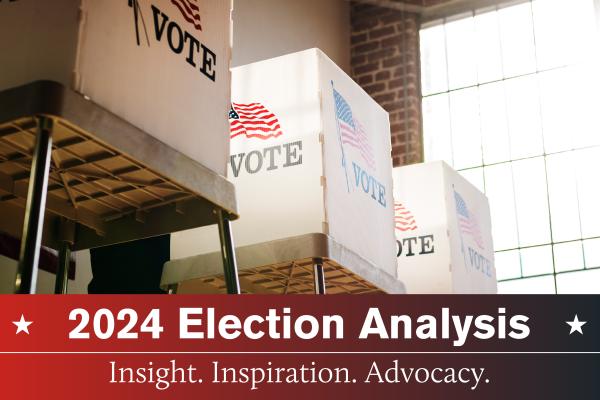Insights on National Security
139 total results. Page 1 of 6.
Welcome to the November 2025 issue of “As the (Customs and Trade) World Turns,” our monthly newsletter where we compile essential updates from the customs and trade world over the past month. We bring you the most recent and significant insights in an accessible format, concluding with our main takeaways — aka “And the Fox Says…” — on what you need to know.
It’s hard not to experience whiplash with export controls recently. A little over a month ago, the Bureau of Industry and Security (BIS) announced the new Affiliates Rule, which took effect immediately on September 29.
Welcome to the October 2025 issue of “As the (Customs and Trade) World Turns,” our monthly newsletter where we compile essential updates from the customs and trade world over the past month. We bring you the most recent and significant insights in an accessible format, concluding with our main takeaways — aka “And the Fox Says…” — on what you need to know.
The Bureau of Industry and Security (BIS) updated its Entity List FAQs, providing some additional guidance about the “Affiliates Rule” that came into effect on September 29.
On September 29, the Bureau of Industry and Security (BIS) issued an interim final rule that significantly expands end user controls under the Export Administration Regulations (EAR) by extending restrictions to foreign entities owned, directly or indirectly, 50% or more by one or more parties on specified lists of proscribed companies, including the Entity List.
Welcome to the September 2025 issue of “As the (Customs and Trade) World Turns,” our monthly newsletter where we compile essential updates from the customs and trade world over the past month. We bring you the most recent and significant insights in an accessible format, concluding with our main takeaways — aka “And the Fox Says…” — on what you need to know.
After a three month wait, the US Department of Commerce’s Bureau of Industry and Security (BIS) has finally caught up with the US Department of the Treasury’s Office of Foreign Assets Control (OFAC) in relaxing restrictions on trade with Syria, but this time in the export control world.
Welcome to the August 2025 issue of “As the (Customs and Trade) World Turns,” our monthly newsletter where we compile essential updates from the customs and trade world over the past month. We bring you the most recent and significant insights in an accessible format, concluding with our main takeaways — aka “And the Fox Says…” — on what you need to know.
On July 25, the US Department of Commerce, Bureau of Industry and Security (BIS) issued new Frequently Asked Questions (FAQs) related to the January 16 Information and Communication Technology and Services (ICTS) Rule that prohibits the import and sale of connected vehicles and their related hardware/software with a sufficient Chinese or Russian nexus, “Securing the Information and Communications Technology and Services Supply Chain: Connected Vehicles” (the Rule).
The Trump Administration is moving aggressively to prevent foreign adversaries’ ownership of US agricultural land.
The Committee on Foreign Investment in the United States (CFIUS) is back in the spotlight.
Welcome to the July 2025 issue of “As the (Customs and Trade) World Turns,” our monthly newsletter where we compile essential updates from the customs and trade world over the past month. We bring you the most recent and significant insights in an accessible format, concluding with our main takeaways — aka “And the Fox Says…” — on what you need to know.
On June 11, the US Department of Commerce, Bureau of Industry and Security (BIS) announced the release of two General Authorizations, accompanied by additional Frequently Asked Questions (FAQs) related to the January 16 Information and Communication Technology and Services (ICTS) Rule that prohibits the import and sale of connected vehicles and their related hardware/software with a sufficient Chinese or Russian nexus, “Securing the Information and Communications Technology and Services Supply Chain: Connected Vehicles” (the Connected Vehicles Rule).
Welcome to the June 2025 issue of “As the (Customs and Trade) World Turns,” our monthly newsletter where we compile essential updates from the customs and trade world over the past month. We bring you the most recent and significant insights in an accessible format, concluding with our main takeaways — aka “And the Fox Says…” — on what you need to know.
On June 9, Deputy US Attorney General Todd Blanche issued a memorandum outlining new guidelines for the enforcement of the Foreign Corrupt Practices Act (FCPA).

Welcome to the May 2025 issue of “As the (Customs and Trade) World Turns,” our monthly newsletter where we compile essential updates from the customs and trade world over the past month. We bring you the most recent and significant insights in an accessible format, concluding with our main takeaways — aka “And the Fox Says…” — on what you need to know.
On April 28, the US Department of Commerce, Bureau of Industry and Security (BIS) published the long anticipated Frequently Asked Questions (FAQs) regarding the January 16 Information and Communication Technology and Services (ICTS) Rule that prohibits the import and sale of connected vehicles and their related hardware/software with a sufficient Chinese or Russian nexus (“Securing the Information and Communications Technology and Services Supply Chain: Connected Vehicles.”)
President Trump’s first months in office have been busy, but, in the export control world, we have been grateful for a brief respite from the mind-bending, hundreds-of-pages-long, industry-changing rules that the US Department of Commerce’s Bureau of Industry and Security (BIS) issued during the last stretch of President Biden’s term — sometimes more than one per day!
Foreign nationals and employers should plan all international travel more carefully and further in advance. This is not a travel ban but has opened the path to create a travel ban in the future, as he did in his earlier Administration.
On March 1, President Trump issued an Executive Order (EO) requiring the US Department of Commerce (Commerce) to investigate the national security implications in connection with imports of timber, lumber, and their derivative products.
The H-1B is the most common work visa for foreign nationals in professional-level jobs in the United States. Effective January 17, there is a new H-1B “modernization” rule which introduced some significant changes and codified some existing processing practices to the H-1B visa program.
On February 25, President Trump issued an executive order (EO) requiring the US Department of Commerce (Commerce) to investigate the national security implications of the copper supply chain. The investigation will be based on section 232 of the Trade Expansion Act of 1962.

Welcome to the January 2025 issue of “As the (Customs and Trade) World Turns,” our monthly newsletter where we compile essential updates from the customs and trade world over the past month. We bring you the most recent and significant insights in an accessible format, concluding with our main takeaways — aka “And the Fox Says…” — on what you need to know.

The United States awoke on November 6 to a changed and improbable political landscape. The nation has re-elected Donald J. Trump as President and has given him a US Senate Republican majority and potentially a US House of Representatives Republican majority as well. As fatigued and steadfast local and state election workers continue to sort through ballots, we continue to look to the finalization of tallies for some remaining Senate and House races to determine the nature and size of Congressional majorities.

Welcome to the September 2024 issue of “As the (Customs and Trade) World Turns,” our monthly newsletter where we compile essential updates from the customs and trade world over the past month.